Code reviewing is a part of any software development process in the world. This part is about testing the code and identifying bugs that are present early on. Usually, this part is always ahead of merging the code with the codebase.
If the code reviewing is effective, it will prevent errors and bugs from infiltrating the project. And it will improve the quality of the code right at the beginning of the development process. Because this is a crucial stage of the developing process, it is always advisable to have a tool that will help you manage that. So, buckle up; we are in for a treat, developers.
1. Review Board
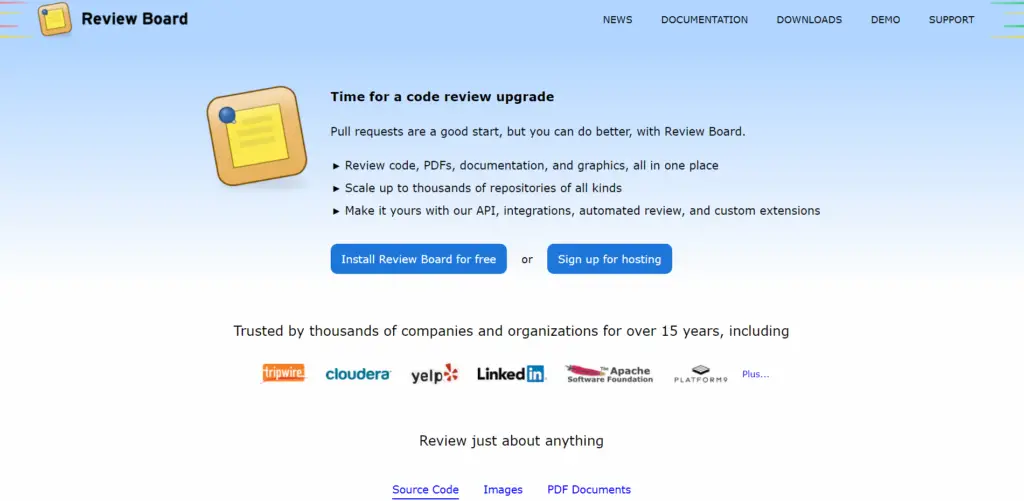
The first tool on our list is Review Board. It is an open-source, web-based code reviewing tool. It offers a demo available on their website, or you can download the software and set it up on your server. Review Board also offers a broad spectrum of integrations such as Mercurial, CVS, Git, Perforce, and it lets you link it to Amazon S3 if you want to store screenshots.
Plus, this tool offers you two code reviews options depending on your requirements, and those are post-commit and pre-commit. If you don’t have an integrated version control system, don’t worry. This tool lets you use a diff file so you can upload any code changes for a review. It also provides you with a graphical comparison of their changes in your code.
2. Crucible
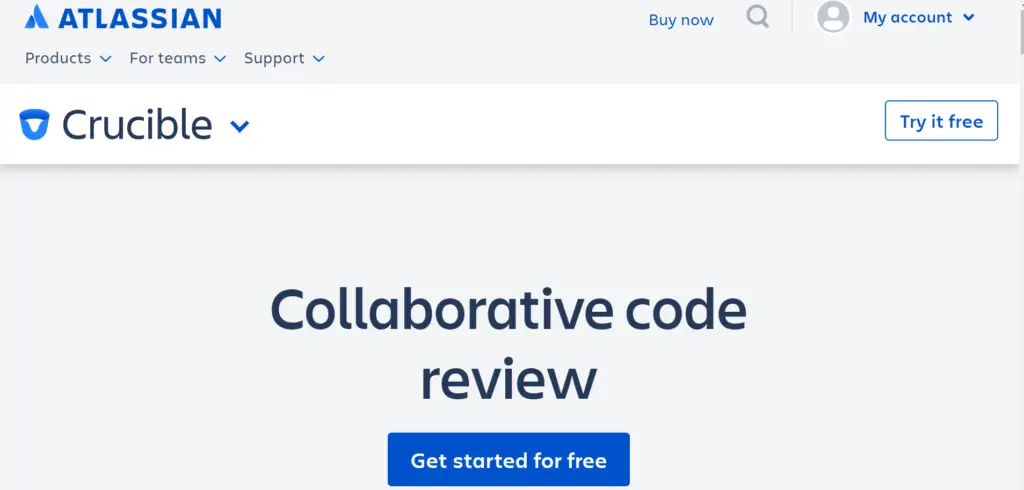
The second tool on our list is Crucible. This little gem comes with tools that will allow you to review codes, identify bugs, and discuss change plans without problems. Like the previous recommendation, this one also supports Mercurial, Git, SVN, Perforce, and CVS. The main function is to give you the freedom to perform code reviews without any hassle.
Besides, it lets you comment on the code and inline within the diff, so you can always pinpoint a specific thing you want to refer to.
3. Collaborator
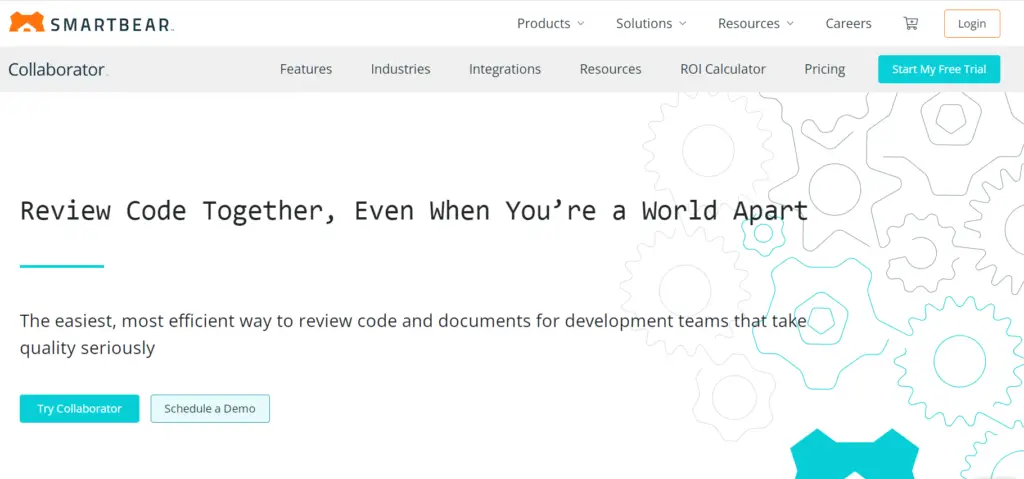
Collaborator is our third pick. The tool was created by SmarBear, and it is a document review and a peer code tool for development teams. Of course, you can source code review without any problems, but you can also review the design documents with your team. It also has integrations available with some popular project management tools such as Jira, Visual Studio, and Eclipse.
But, it also supports a great deal of version control systems such as CVS, Git, Mercurial, Perforce, Subversion, and TFS. It also has the option to report and analyze key metrics related to your code reviewing process. Plus, it lends a hand with bg tracking and audit management.
4. CodeScene
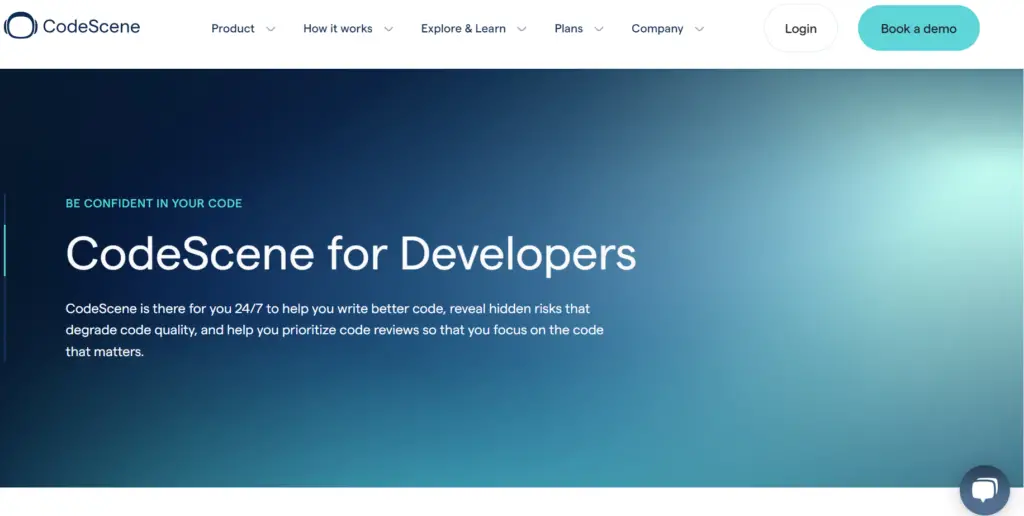
CodeScene is our fourth pick on this list. This is a tool that will go over and beyond the traditional static code analysis that most agencies offer. It works so that it includes a temporal dimension to analyze the evolution of your codebase when it performs the behavioral code analysis.
It has two forms available for you to pick from, an on-premise solution and a cloud-based solution, whatever you prefer. The cloud-based one is free for public repositories and is hosted on GitHub.
5. Visual Expert
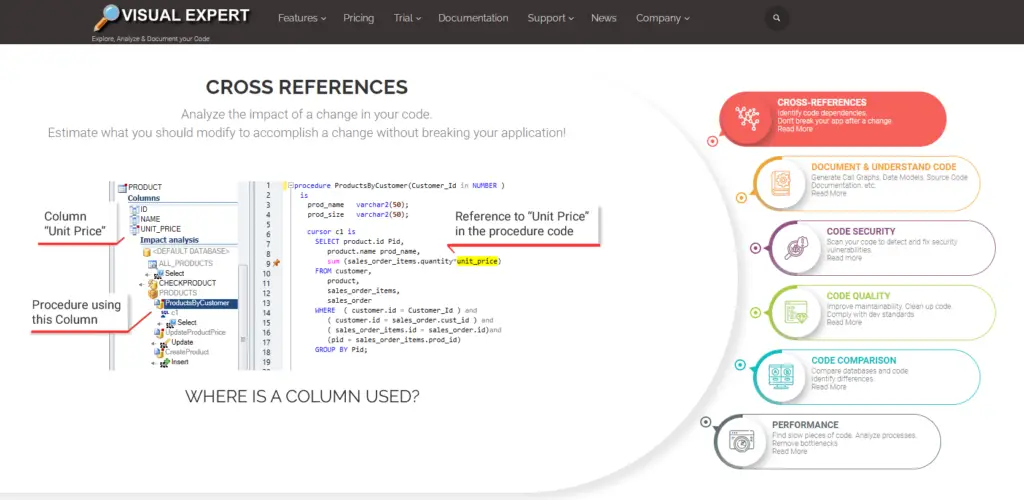
The fifth spot goes to Visual Expert. This tool is an enterprise solution that specializes in database code. This little gem offers support for three platforms: SQL Server, Oracle PL/SQL, and PowerBuilder. So if you are on any other platform, you can skip this one because you won’t be able to integrate it for code reviewing.
Yes, it has a traditional code review, but Visual Expert also analyzes every change in your code, so it foresees performance issues that can happen due to the change you made. It is actually thinking ahead of you, making your job much less stressful.
6. RhodeCode
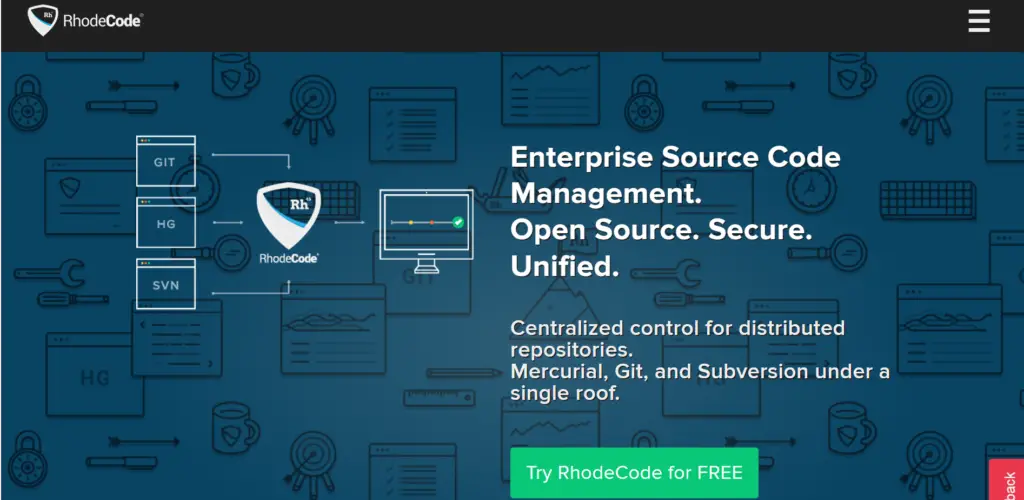
The sixth and final place on our list goes to RhodeCode. This one is a web-based tool that will gladly help you perform code reviews. It only supports three control systems: Git, Mercurial, and Subversion.
It can help improve code quality because it enables a team to collaborate effectively. RhodeCode also provides a layer of permission management for secure development if you need it. It has an online code editor that you can use for any small changes to the web interface, and it also gives you the freedom to navigate through the history of your projects.
Final Words
In the end, all we can say is that whatever you do on the internet, you can say thank you to the ones behind those codes. They are the real heroes. But even a hero sometimes needs help from a tool, so we provided some tools that will help them make this online space even better.

